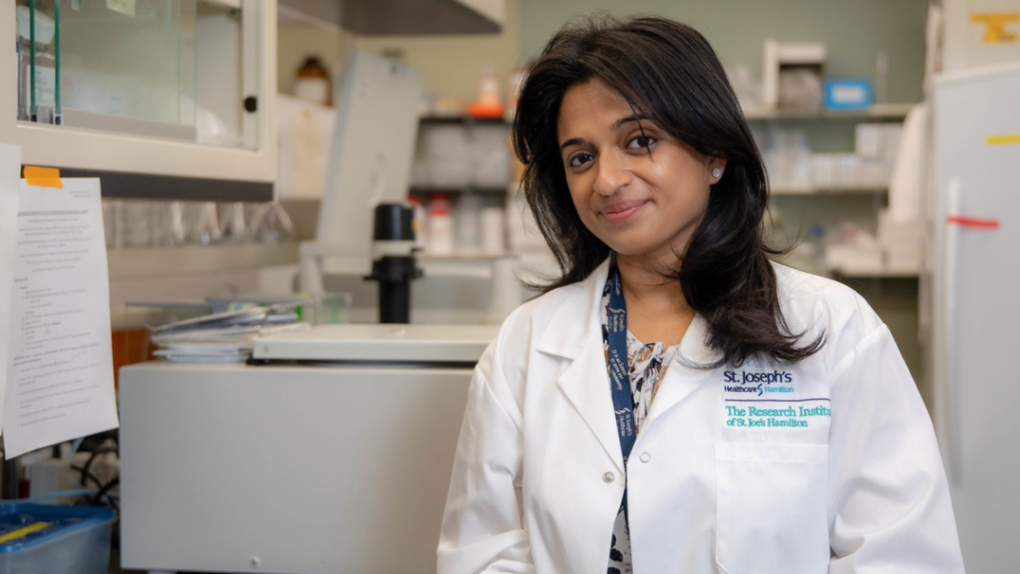Long COVID Awareness Day: This Ontario researcher felt the symptoms for 18 months
An Ontario long COVID-19 researcher says she is all too familiar with the lasting effects of the condition, which she experienced for 18 months after she got infected.
Manali Mukherjee is an assistant professor at McMaster University’s respirology division and said she caught COVID-19 in January of 2021.
Typically, Mukherjee said, she recovers from an illness in a week or so, but this was different. After the first 14 days of being “very symptomatic,” blood pressure issues, fatigue, brain fog and headaches remained.
“Those 18 months? I wouldn’t want that back again,” Mukherjee told CTV News Toronto in an interview.
“I was very consciously aware of the fact that I was not being able to focus, because I know the kind of work I do, I’m in academia. So one of the things that we go by is our focus, and our concentration. So that was something that was very menacing for me,” she said.
Mukherjee is one of 3.5 million Canadians who have experienced “long-term symptoms” – also known as Post COVID-19 Condition (PCC) – following a COVID-19 infection, which Statistics Canada defines as symptoms three or more months after an infection that can’t be explained by anything else.
What’s more, roughly 7 in 10 people with long COVID said they experienced symptoms every day or almost every day, the federal agency said.
The symptoms related to long COVID include more than 200 variations, but the most common are shortness of breath, fatigue and brain fog.
Friday is International Long COVID Awareness Day which Mukherjee says presents an opportunity to bring attention to the issue which many Canadians may be unaware of, especially four years after COVID-19 was declared a pandemic.
“First and foremost, it is real. Second, people are suffering,” she said. “There are many people who are dealing with it. Just because you got better, or you didn’t get infected, doesn’t mean the other person did not. We are all very unique beings. Our immune systems are very unique.”
 Manali Mukherjee is seen in this undated image. The assistant professor experienced long COVID symptoms 18 months after she was diagnosed. (McMaster University/St. Joseph’s Healthcare Hamilton)
Manali Mukherjee is seen in this undated image. The assistant professor experienced long COVID symptoms 18 months after she was diagnosed. (McMaster University/St. Joseph’s Healthcare Hamilton)
Of all the PCC patients across Canada, Statistics Canada said 66.4 per cent reported not receiving “adequate” treatment, service, or support for any of their symptoms.
According to a study led by Mukherjee, most people (75 per cent) who develop long COVID recover within one year. However, a portion of those infected (25 per cent) will continue to experience at least one of the three most common symptoms beyond 12 months.
Now, Mukherjee is working on a new trial involving patients diagnosed with PCC to see if her team can identify biomarkers that can predict which patients are at risk of developing severe long COVID symptoms and autoimmune diseases.
“What I’m trying to do is: figure out whether long COVID can lead to autoimmune diseases, if there’s a subset or a proportion of patients who get it, and figure out a way a blood test that will tell us who will get it,” she explained.
View original article here Source









